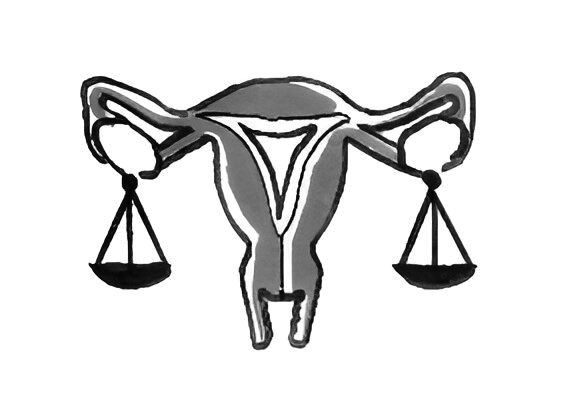Why reproductive justice matters at Bowdoin and beyond
October 3, 2025
 This
piece represents the opinion of the author
.
This
piece represents the opinion of the author
.
 Mia Lasic-Ellis
Mia Lasic-EllisEvery student deserves to feel safe, healthy and empowered on campus. But when reproductive rights are threatened, those basic conditions of student life are at risk. That’s why the Bowdoin Reproductive Justice Coalition (BRJC) works to ensure that every member of our community has real access to care, education and autonomy, not just in theory, but in practice. As defined by SisterSong, the leading collective in this movement, reproductive justice is “the human right to maintain personal bodily autonomy, have children, not have children and parent the children we have in safe and sustainable communities.” This framework shifts the conversation beyond “choice” to the full set of social, political and economic conditions necessary for freedom.
At Bowdoin, we put this framework into practice. BRJC is a hub for activism, discourse and education. We meet weekly to share ideas, launch projects and build solidarity. Our work extends beyond campus: members have testified at the Maine State House on reproductive rights bills like LD 1619, which expanded protections, and LD 975, which would have restricted them. We’ve partnered with Planned Parenthood and Grandmothers for Reproductive Rights to connect Bowdoin students to statewide and national movements. This work proves what we believe: students can and must help shape policy.
We also take direct action to expand access on campus. Last year, BRJC helped secure a vending machine that dispenses free Plan B, ensuring emergency contraception without financial or logistical barriers. This semester, we’re focused on educating students about reproductive laws in their home states because rights on paper mean little without real, practical access.
The stakes are high. Across the country, abortion rights are being stripped away, sex education is underfunded and basic healthcare is out of reach for many. At Bowdoin, a community built around the “common good,” we cannot ignore these attacks. Reproductive justice means more than the right to an abortion. It is the right to raise children safely, to access quality healthcare and to live without discrimination. Protecting these rights is central to any vision of justice.
We invite all Bowdoin students, staff and faculty to join us, whether by attending a meeting, collaborating on a project or simply having a conversation. Our coalition is strongest when it reflects the diversity of our community and empowers everyone to act. We will not stop fighting for reproductive justice. Not here. Not now. Not ever.
“We cannot succeed when half of us are held back.” – Malala Yousafzai
With strength and hope,
Your BRJC officers.
The Bowdoin Reproductive Justice Coalition (BRJC) meets every Tuesday from 7–8 p.m. in the Ladd Living Room. Everyone is welcome. Learn more and become involved through CampusGroups or by checking out @bowdoinrjc on Instagram.
Clementine Bannon ’26 and June Hartman ’26 are members of the Bowdoin Reproductive Justice Coalition.

Comments
Before submitting a comment, please review our comment policy. Some key points from the policy: